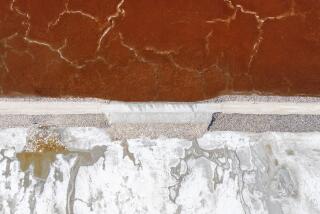Improving Management of World’s Dry Lands
- Share via
Thank you for your editorial (May 4), “Bruised Planet.” It was excellent, although I might have added a comment on the challenge of improving management of the world’s dry lands.
These lands demonstrate the failure of our current approach to land management as clearly as the tropical rain forests. Seventy thousand square kilometers are lost each year to desertification, while more is lost to rising water table and salinity. One-seventh of the planet’s passengers live in these fragile lands, yet little money and talent is focused on the problem of agriculture and development in these lands. Despite the rapidly approaching crisis of the dry lands sustained abundance could be maintained if, and this is a big if, resources were used wisely and equitably.
The evaluation of the many species of plants that have been used in indigenous agricultural systems and by hunter-gatherers is of particular importance because many of these plants and the knowledge for using them are on the verge of extinction. This is one of our special interests, but it has been hampered by a research system that rewards publications--not necessarily contributions. The need for publication provides very strong disincentives for the types of research that are needed most, long-term complex, field studies involving investigators from several disciplines. It is in many respects, a more worrisome problem than fraud.
Another of the many challenges in the coming years will be the development of at least a modicum of ecological literacy in the decision-makers and voters of the world. It is something President Reagan and his generation have missed, but it is something we and our children cannot afford to perpetuate. It may in fact be argued that ecological literacy is more important than any other kind, for without it we will continue to batter, abuse, and imperil our spaceship, Earth. Sustainable development will require sophisticated understanding and management to work with the forces of nature instead of against them.
DAVID A. BAINBRIDGE
Riverside
Bainbridge is a public information specialist at the Dry Lands Research Institute at UC Riverside.
More to Read
Sign up for The Wild
We’ll help you find the best places to hike, bike and run, as well as the perfect silent spots for meditation and yoga.
You may occasionally receive promotional content from the Los Angeles Times.






